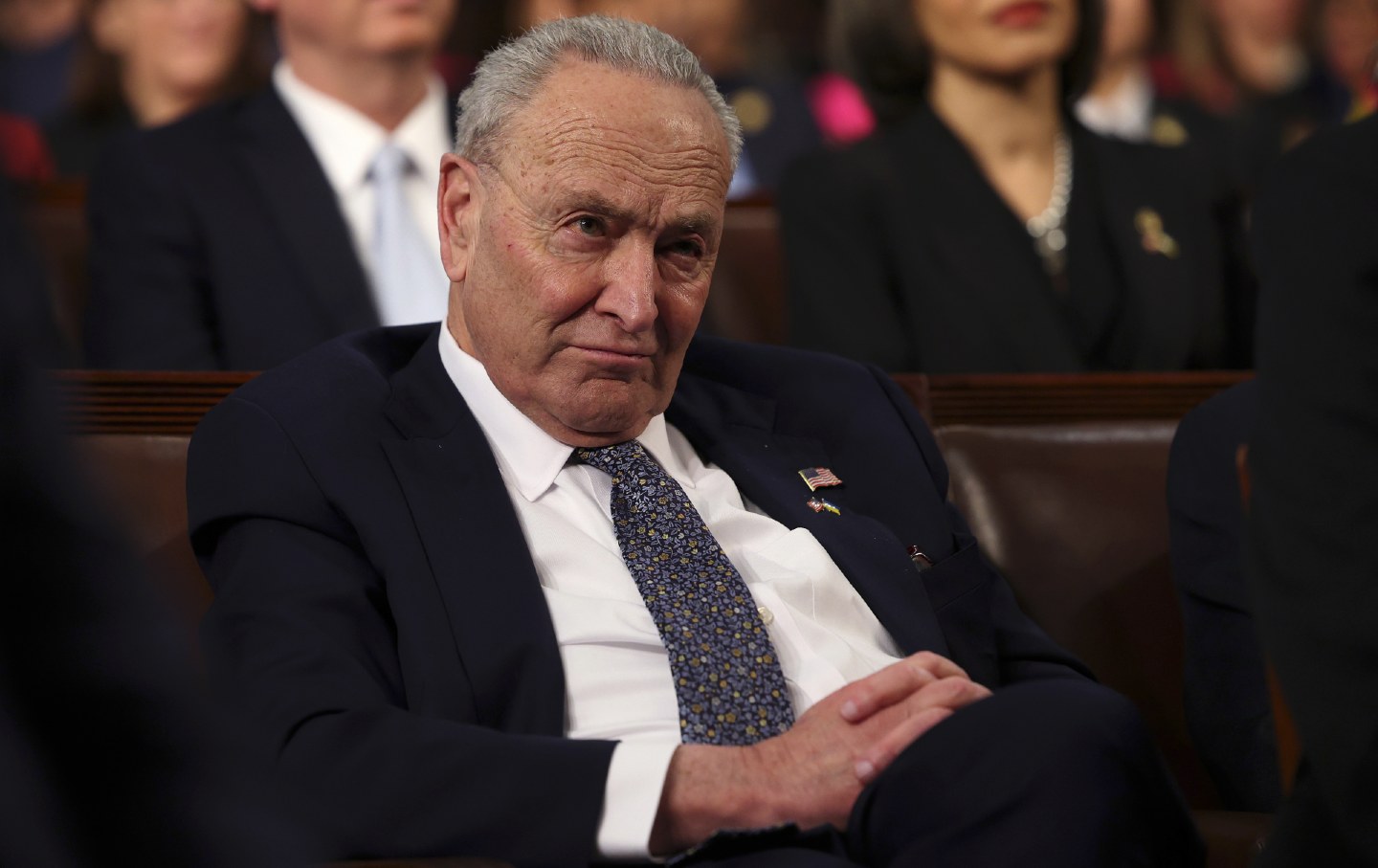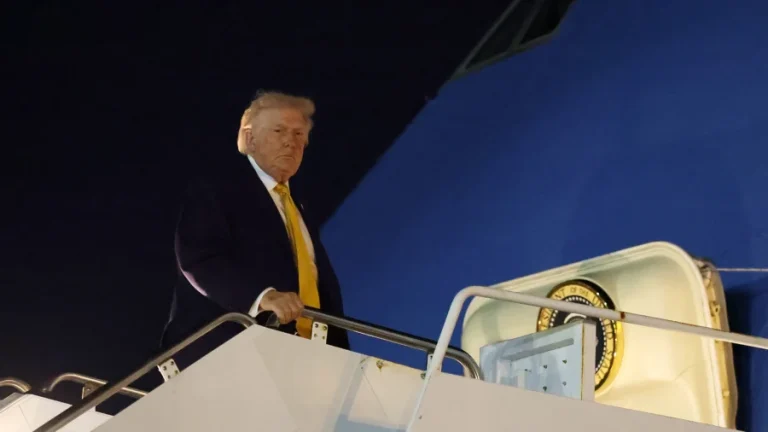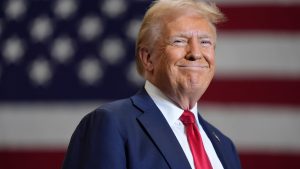Progressives Erupt Following Senate Defections
Tensions within the Democratic Party reached a boiling point Monday after eight Senate Democrats broke ranks to vote with Republicans to end the longest government shutdown in U.S. history. The sudden defections have sent shockwaves through both the progressive and centrist wings of the party, leaving many lawmakers and activists questioning the leadership of Senate Minority Leader Chuck Schumer (D-N.Y.).
Although Schumer himself voted against the deal, he quickly became a target for criticism, with many accusing him of failing to prevent defections that have weakened the party’s negotiating position. Senior Democrats and party insiders described the vote as a “disaster” for Democratic cohesion, and a growing number are openly calling for new leadership in the Senate.
“Despite voting no, Senate Minority Leader Chuck Schumer is emerging as the top target for not containing the defections,” Axios reported, citing multiple Democratic sources. One senior House Democrat added, “Schumer is voting no, but that doesn’t mean a primary isn’t coming.”
https://twitter.com/harryjsisson/status/1987707678307795046
The Deal That Sparked Outrage
The agreement that triggered the backlash reportedly included a commitment from Senate Republicans to allow a future vote on legislation extending COVID-era Obamacare subsidies. However, progressive Democrats quickly dismissed the measure as insufficient, arguing that it provides no immediate relief for millions of Americans who rely on these critical healthcare benefits.
“It’s complete BS,” Rep. Becca Balint (D-Vt.) told Axios. “A concept of a possible vote. People need healthcare, damn it. Not some lame promise about a mythical future vote.” Rep. Jared Huffman (D-Calif.) echoed the sentiment, saying, “Sounds like a lousy deal to me.”
An anonymous centrist House Democrat added, “People are furious. It’s an awful deal and a total failure to use leverage for anything real.” Many lawmakers and progressive activists argue that the vote represented a missed opportunity to secure concrete protections for health coverage while the government remained closed.
Progressives Decry the Agreement
Criticism has not been limited to elected officials. Progressive organizations and advocacy groups quickly denounced the deal, calling it an “empty promise” that leaves working Americans vulnerable. Joel Payne, a spokesperson for MoveOn, warned that the shutdown resolution will “screw over millions of working Americans,” claiming that too many Democrats are failing to heed the message voters sent on Election Day.
A Democratic source described as “progressive” told Axios, “People are pissed because it appears Senate Democrats got almost nothing from the agreement.” The sentiment reflects frustration among those who feel the party leadership has repeatedly compromised without achieving meaningful policy wins.
Bernie Sanders Speaks Out
Independent Senator Bernie Sanders, who caucuses with Democrats, was particularly vocal in his condemnation of the eight senators who crossed party lines.
“Tonight, eight Democrats voted with the Republicans to allow them to go forward on this continuing resolution,” Sanders said Sunday evening. “To my mind, this was a very, very bad vote.” Sanders’ comments underscore the growing rift between the progressive and establishment wings of the party, particularly on issues of healthcare and economic fairness.
The Vermont senator emphasized that the vote not only undermines Democratic leverage but could also set a precedent for future negotiations, effectively signaling to Republicans that the party may be willing to cave in the face of political pressure.
Calls for Schumer to Step Down
The fallout has left Schumer vulnerable within his own caucus. Critics argue that the vote represents a failure of leadership, as the minority leader was unable to maintain party unity in a high-stakes situation.
Adam Cochran, a policy consultant and independent investigative journalist, accused Schumer of orchestrating the vote while simultaneously avoiding responsibility. “Schumer organized this, and then is voting no last second, and letting retiring Dems take the heat,” Cochran wrote on social media. “If this goes through, that needs to be the end of Schumer leadership regardless of how he votes. He’s the minority leader—the buck stops at him.”
The criticism is not confined to outside observers. Progressive Democrats are increasingly vocal in calls for new leadership, pointing to Schumer’s inability to enforce party discipline as a threat to the party’s cohesion ahead of the 2026 midterm elections.
Additional Criticism From Democratic Leaders
The dissatisfaction extends beyond the Senate. Illinois Governor J.B. Pritzker referred to the shutdown agreement as “an empty promise” on social media, while Representative Adam Schiff (D-Calif.) tweeted that the vote “does NOTHING to address this Republican health care crisis.”
Other senior Democrats are privately voicing frustration that the leadership’s concessions may have weakened their position on healthcare subsidies and other key issues. The ongoing political fallout highlights the complex balancing act Schumer faces as he attempts to navigate the competing demands of progressives, centrists, and the broader electorate.
The Stakes: Obamacare and Beyond
At the heart of the dispute is the future of Obamacare subsidies, which were originally extended during the COVID-19 pandemic. The Senate deal only included a promise of a future vote, leaving millions of Americans uncertain about their health coverage for the upcoming year. Progressive Democrats argue that this represents a serious failure to protect working families and undermines the party’s messaging on healthcare as a fundamental right.
The situation is further complicated by the broader political landscape. With the 2026 midterm elections on the horizon, Democratic leaders are acutely aware that any perception of weakness or disunity could be politically costly. The defection by eight Senate Democrats, therefore, is being treated not just as a legislative setback but as a potential public relations disaster.
Internal Party Tensions Intensify
The vote has intensified existing tensions between the party’s progressive and establishment factions. Progressives argue that the leadership has repeatedly compromised on key issues without delivering tangible results, while centrists caution that hardline stances risk prolonging government shutdowns and alienating moderate voters.
The split also raises questions about Schumer’s ability to retain influence over the Senate caucus. Multiple insiders suggest that the recent vote may embolden progressive members to challenge his leadership directly, either through formal motions or informal political pressure.
Looking Ahead: Political Consequences
The fallout from Sunday’s vote is likely to play out over the coming weeks and months. Progressive groups have signaled that they may organize public campaigns targeting Schumer and other Senate Democrats who were perceived as complicit in the deal, while party strategists warn that the controversy could dominate headlines heading into the next election cycle.
Observers also note that the issue of healthcare subsidies remains unresolved. Senate Republicans, having secured bipartisan defections, may have less incentive to negotiate, leaving the party’s progressive wing increasingly frustrated with Schumer’s leadership.
Some Democratic lawmakers are already contemplating public statements and strategic moves to pressure Schumer, arguing that accountability is necessary to maintain credibility with voters. Others are reportedly considering internal party mechanisms to challenge his authority should defections continue or similar deals be brokered without party consensus.
Conclusion
The recent Senate shutdown vote has left the Democratic Party at a crossroads. On one hand, the government is moving closer to reopening after a prolonged closure; on the other hand, the episode has exposed deep divisions within the party and has placed Schumer in the political crosshairs.
With calls for leadership change growing louder, progressive Democrats are signaling that they will hold their leaders accountable, both for policy outcomes and for perceived failures in unity and strategy. Whether Schumer can weather the storm or will face formal challenges from within his caucus remains an open question.
One thing is clear: the fallout from Sunday’s vote will continue to reverberate across the Democratic Party, shaping discussions on healthcare, party discipline, and leadership heading into the next critical election cycle.

James Jenkins is a celebrated Pulitzer Prize-winning author whose work has reshaped the way readers think about social justice and human rights in America. Raised in Atlanta, Georgia, James grew up in a community that instilled in him both resilience and a strong sense of responsibility toward others. After studying political science and creative writing at Howard University, he worked as a journalist covering civil rights issues before dedicating himself fully to fiction. His novels are known for their sharp, empathetic portraits of marginalized communities and for weaving personal stories with broader political realities. Jenkins’s breakout novel, Shadows of Freedom, won national acclaim for its unflinching look at systemic inequality, while his more recent works explore themes of identity, resilience, and the fight for dignity in the face of oppression. Beyond his novels, James is an active public speaker, lecturing at universities and participating in nonprofit initiatives that support literacy and community empowerment. He believes that storytelling is a way to preserve history and inspire change. When not writing, James enjoys jazz music, mentoring young writers, and traveling with his family to explore cultures and stories around the world.









